Citizen participation important driver of optimism in Europe
Citizens who feel their voice counts are not only more optimistic about their own future, but also about broader society and the institutions that govern their lives.

Citizens who feel their voice counts are not only more optimistic about their own future, but also about broader society and the institutions that govern their lives.

Eurofound’s Directorate met with Thomas Byrne T.D., Minister of State with responsibility for EU Affairs, in Dublin today to discuss the evolving role of the Agency in producing timely and relevant research on the implications of the COVID-19 pandemic on employment, the labour market and quality of life, as well as its strategic position as the only EU agency based in Ireland.
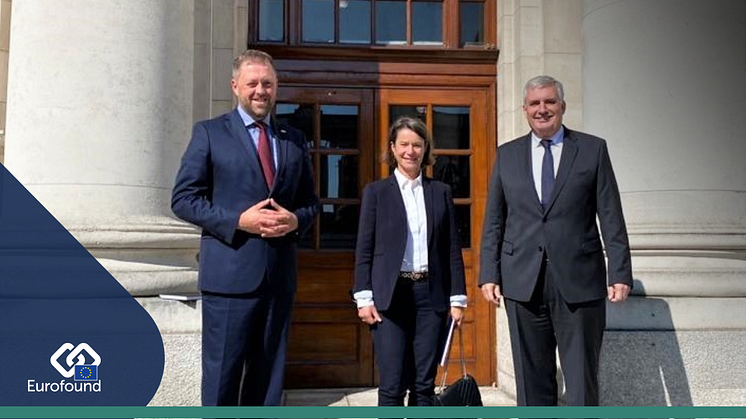
As Europe moves to the final stages of its initial vaccination programme, workers are now returning to offices and other places of work, and citizens in general are reengaging into the community. Eurofound will be releasing important new research this autumn investigating how COVID-19 has impacted our lives and what these changes mean for Europe.
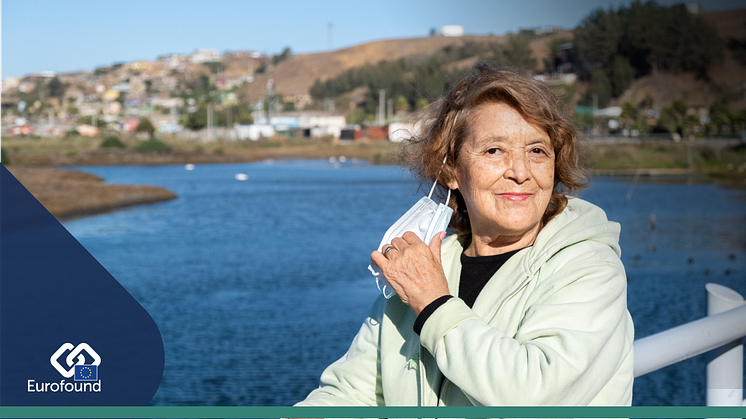
More than 9 out of 10 establishments with 10 or more employees in Slovakia report difficulties in finding suitable candidates for open positions, according to a recent Eurofound report on ‘Tackling labour shortages in EU Member States’. This is the highest proportion in the EU, followed by Romania (90%) and Malta (88%), while rates are lowest in Denmark and Greece (both 57%).

In spring 2021, around 5% of people in Belgium, who had been employed before the pandemic, reported having lost their job. Compared to the EU average of 10%, Belgium fares comparatively well, with only neighbouring Luxembourg and the Netherlands reporting lower figures, according to Eurofound’s large-scale Living, working and COVID-19 online survey.

Following the declines in employment rates and working hours across Europe in 2020,i economies began to show signs of recovery during the first quarter of 2021. The gradual rekindling of economic activity has led to a surge in demand for workers and reawakened concerns over labour shortages.

Achieving climate-neutral objectives established at European and international levels, such as in the UN Sustainable Development Goals and the European Green Deal, needs broad-based support and cross-departmental policy development at national, regional and local levels.

Slovenians have fared comparatively well in terms of mental health during the COVID-19 pandemic compared to their EU counterparts standing at 53.2 on a scale of 100, behind only Denmark and Finland. According to Eurofound’s large-scale Living, working and COVID-19 online survey, the EU average was 45.3 in spring 2021.

74% of people in Croatia report difficulties making ends meet, according to Eurofound’s large-scale Living, working and COVID-19 online survey. This is the highest figure among EU Member States, where the average was 45.1%. For Croatia, this number remained consistently high throughout the pandemic at 73.5% in April 2020 reporting a difficult personal financial situation.

Vaccine acceptance is key to the success of COVID-19 vaccination campaigns worldwide. Worryingly, over a quarter of people living in Europe are hesitant about taking a COVID-19 vaccine, and the level of hesitancy is especially high among heavy users of social media.
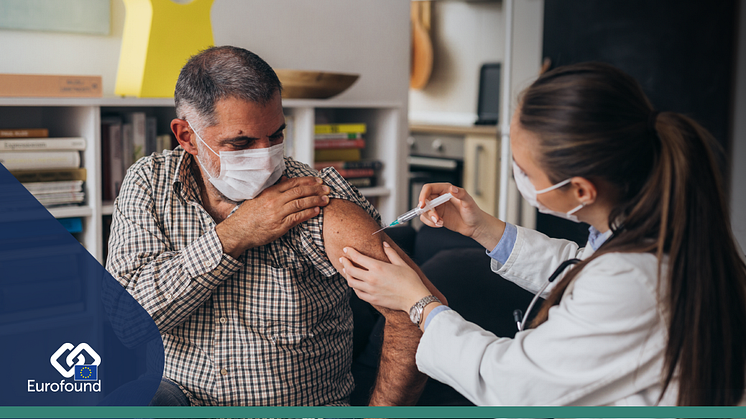
The trust of people in Portugal in the European Union is the highest across all Member States, according to Eurofound’s large-scale Living, working and COVID-19 survey. With 5.9, it is significantly higher than the EU average at 4.6. Trust in the EU in Portugal has increased throughout the COVID-19 pandemic from 5.2 in April 2020 to 5.4 during the summer of last year to 5.9 in spring 2021.

Throughout the COVID-19 pandemic, trust of people in Sweden in their national government has declined from 6.4 to 5.1. Respondents rated their trust levels at the onset of the pandemic (data collection April 2020) at 6.4 on average, which decreased to 5.5 during the summer months of last year and then to 5.1 in February and March of this year.
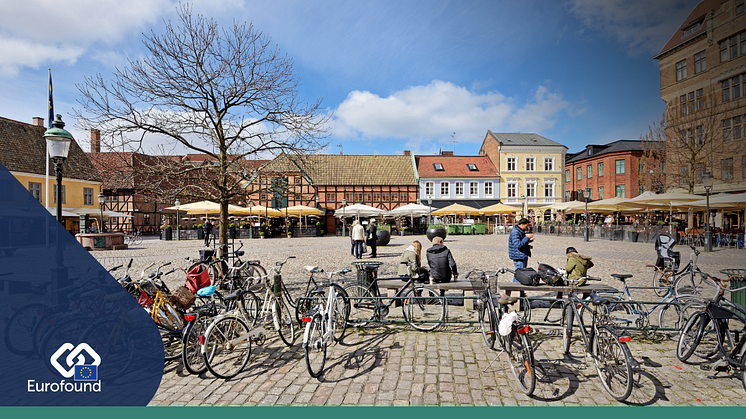
Trust in the national government in Denmark ranked highest among EU countries at 7 out of 10, according to Eurofound’s large-scale Living, working and COVID-19 online survey. This marked an increase of 0.5 points compared to the summer of last year. This pattern goes against the trend observed in all other EU Member States, where the average trust rating fell to just 3.9 from 4.6.
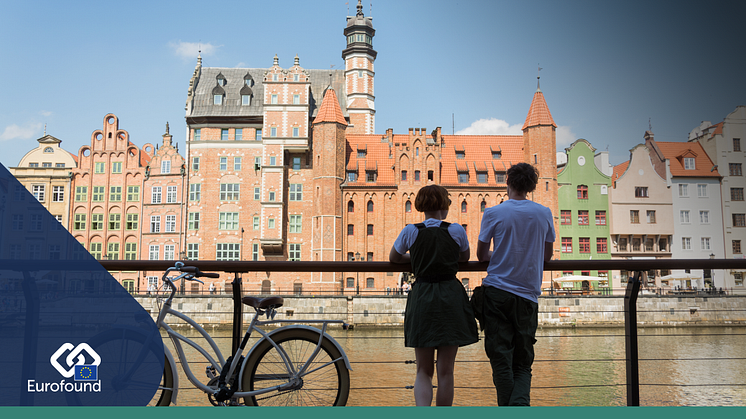
Pessimism about one’s future financial situation has decreased in Italy compared to summer 2020, according to Eurofound’s large-scale Living, working and COVID-19 online survey. In February 2021, over one fifth (22.5%) of people in Italy expected a worsening of their situation compared to 27.6% in June/July of last year.

Just 12% of people surveyed in the third round of Eurofound’s Living, working and COVID-19 online survey believed the support measures rolled out to help deal with the implications of the pandemic were fair, with the same proportion believing that the measures reached those who needed them.

Over a quarter (27%) of adults in the EU are vaccine hesitant, with 29% of men and 25% of women indicating that they were either ‘very unlikely’ or ‘rather unlikely’ to take the COVID-19 vaccine in Eurofound’s large-scale Living, working and COVID-19 online survey.
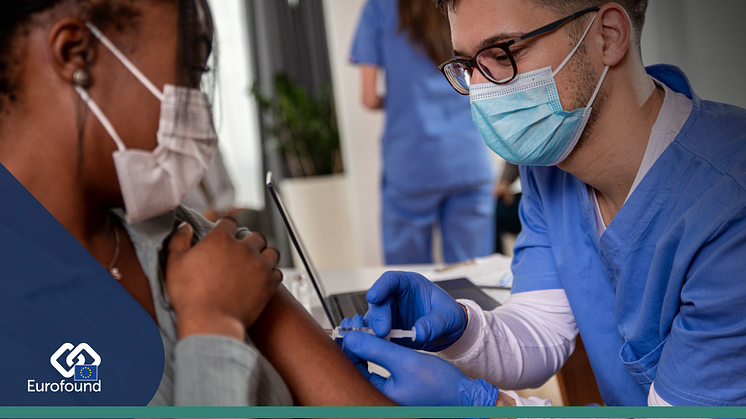
Across Europe, citizens are feeling the divisive social and economic fallout of the pandemic and a dwindling number now view crisis support measures as fair and efficient.
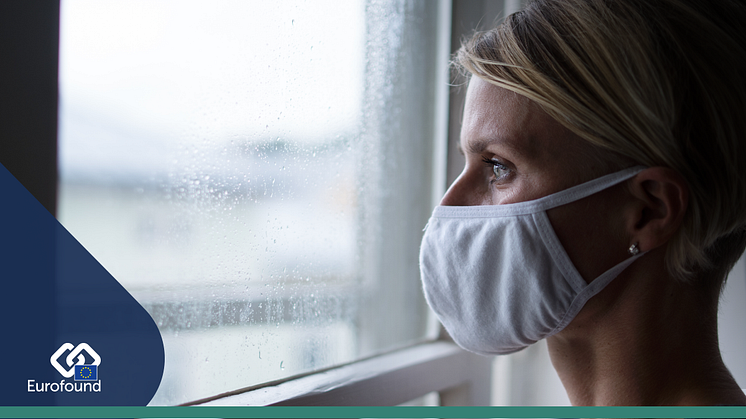
Released just before the publication of the results of the latest Living, working and COVID-19 e-survey, Eurofound's 2020 yearbook takes stock of how much has happened in just 12 months, projects what might lie ahead, and sets the scene for EU policymakers as they seek to shape Europe’s policy responses.

On 9 May, the Conference on the Future of Europe will get underway. Floated well before the COVID-19 outbreak, its timing in the wake of the seismic shifts precipitated by the pandemic, and its implementation alongside the European Pillar of Social Rights Action Plan, means that the outcomes could be far-reaching.
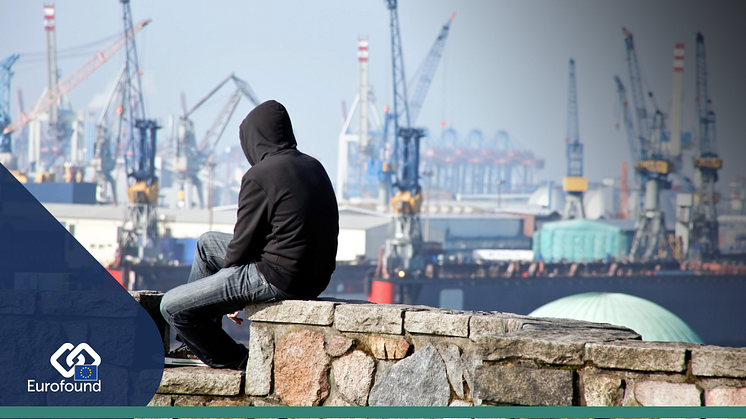
Eurofound’s new policy brief on ‘Education, healthcare and housing - How access changed for children and families in 2020’ focuses on the aspects of accessibility for children and families for which Eurofound has data and highlights differences in accessibility before and during the COVID-19 pandemic.
